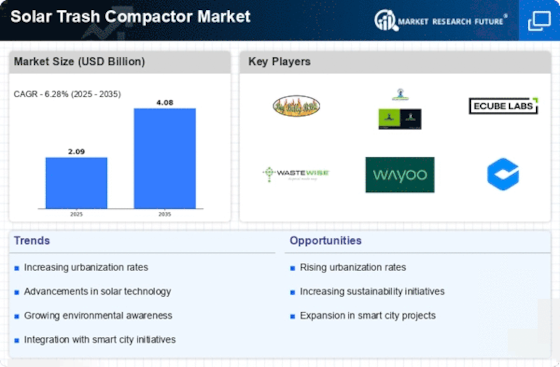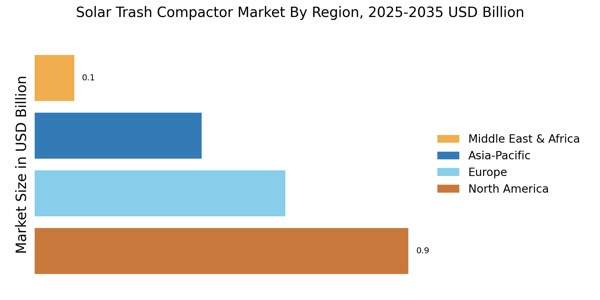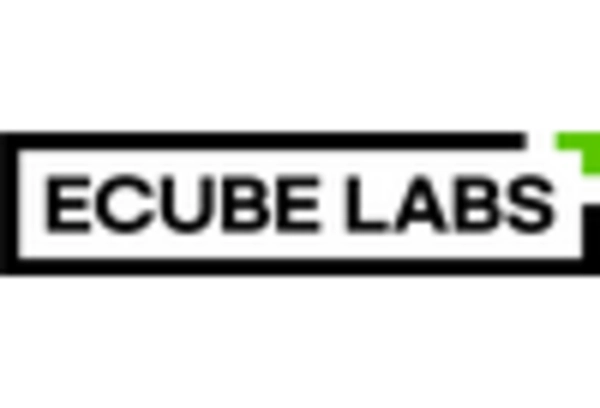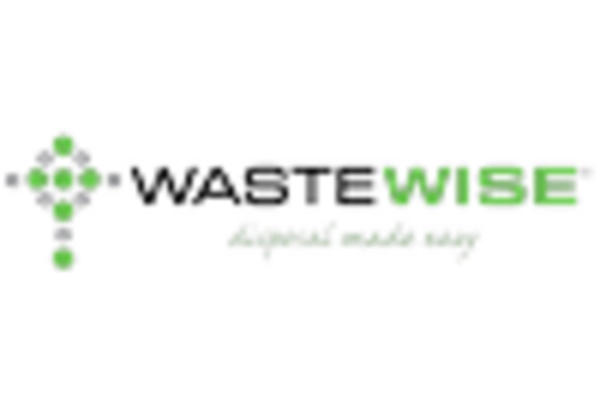Rising Urbanization
The Solar Trash Compactor Market is experiencing a notable surge due to the increasing rate of urbanization. As more individuals migrate to urban areas, the demand for efficient waste management solutions escalates. Urban centers are often challenged by high population density, leading to increased waste generation. Solar trash compactors, which utilize renewable energy, offer a sustainable solution to this growing problem. According to recent data, urban areas are projected to account for over 68% of the world's population by 2050, intensifying the need for innovative waste management systems. This trend suggests that municipalities are likely to invest in solar compactors to enhance their waste collection efficiency while reducing operational costs. Thus, the rising urbanization serves as a significant driver for the Solar Trash Compactor Market.
Cost-Effectiveness of Solar Solutions
The Solar Trash Compactor Market is significantly driven by the cost-effectiveness of solar solutions. As the technology behind solar compactors continues to advance, the initial investment costs are decreasing, making them more accessible to municipalities and businesses. The operational savings associated with solar compactors, such as reduced collection frequency and lower fuel costs, enhance their appeal. Reports indicate that municipalities can save up to 50% on waste collection costs by utilizing solar-powered compactors. This financial advantage, combined with the long-term sustainability benefits, positions solar trash compactors as a viable option for waste management. Consequently, the cost-effectiveness of solar solutions is likely to propel the growth of the Solar Trash Compactor Market in the coming years.
Government Initiatives and Regulations
Government initiatives and regulations play a crucial role in shaping the Solar Trash Compactor Market. Many governments are implementing stringent waste management policies aimed at reducing landfill waste and promoting recycling. These regulations often encourage the adoption of environmentally friendly technologies, including solar-powered solutions. For instance, several countries have set ambitious targets for reducing greenhouse gas emissions, which indirectly supports the growth of solar trash compactors. In addition, financial incentives such as grants and subsidies for municipalities adopting green technologies further stimulate market growth. As a result, the regulatory landscape is likely to foster an environment conducive to the expansion of the Solar Trash Compactor Market, encouraging local governments to invest in sustainable waste management solutions.
Technological Advancements in Waste Management
Technological advancements in waste management are significantly influencing the Solar Trash Compactor Market. Innovations in sensor technology, data analytics, and IoT integration are enhancing the functionality of solar compactors. These advancements allow for real-time monitoring of waste levels, optimizing collection routes, and improving overall efficiency. For instance, smart solar compactors can notify waste management services when they are full, reducing unnecessary collection trips. This not only saves costs but also minimizes environmental impact. As technology continues to evolve, the capabilities of solar trash compactors are expected to expand, making them an increasingly attractive option for municipalities and businesses. Thus, the ongoing technological advancements are likely to serve as a catalyst for the growth of the Solar Trash Compactor Market.
Environmental Awareness and Corporate Responsibility
The growing environmental awareness among consumers and businesses is a significant driver for the Solar Trash Compactor Market. As society becomes increasingly conscious of the impact of waste on the environment, there is a rising demand for sustainable waste management solutions. Companies are also recognizing the importance of corporate social responsibility, leading them to adopt greener practices. Solar trash compactors align with these values by reducing carbon footprints and promoting recycling. Furthermore, businesses that implement solar compactors can enhance their brand image and appeal to environmentally conscious consumers. This shift in consumer behavior and corporate responsibility is likely to drive the adoption of solar trash compactors, thereby contributing to the growth of the Solar Trash Compactor Market.

















